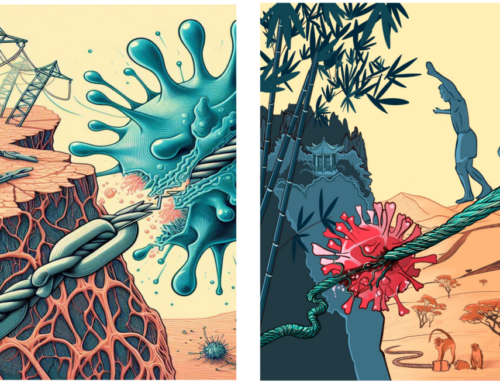Have you got what it takes to apply successfully for an ERC grant and turbo-charge your academic career with the seal of approval for scientific excellence in Europe? And how would you know, if this were so? Please read about the opportunities for researchers from less research intensive countries, as we from biolution have been working with the Turkish NCP Tübitak on supporting researchers from Turkey at the recent ERC writing camp in Istanbul.
For over a decade, biolution has provided valuable support to more than 30 researchers seeking ERC grants during the proposal writing phase. Additionally, we have assisted 12 applicants specifically during the interview stage. Drawing from this extensive experience, our project developer, Stefan Grünert, has devised a unique approach to guide individuals from countries with limited exposure to the ERC funding program and scarce local support. We have successively established a dedicated strategy to collaborate with exceptional researchers, aiming to coach them towards a successful ERC application. This endeavour holds particular significance for those applying for ERC-StG and ERC-CoG grants.

Criticism has been directed towards the ERC’s focus on scientific excellence, as it has resulted in some outstanding European research institutions being awarded a considerable number of grants, despite already having high levels of funding. While we recognize that this outcome is an inherent aspect of an excellence program, we believe the genuine issue lies in the extensive expertise concentrated at these institutions, granting an additional unfair advantage to their applicants. Applicants from these institutions benefit from the extensive expertise in numerous ways, including access to funded proposals, encouragement and feedback on their grants from experienced peers. All these are critical aspects for a successful ERC-application, in particular for researchers during the early years of their independent career. Similarly gifted researchers with good project ideas from institutions in less research intensive countries might struggle to compete without the same level of expertise at their disposal. While the ERC has recently recognised these problems with a specific work group for widening European participation (https://erc.europa.eu/about-erc/thematic-working-groups/working-group-widening-european-participation), we feel the true underlying problems remain unaddressed for now.

An analysis of career patterns of successful ERC-applicants has found many grantees are not conforming to a “high-flyer” career, indicating there are sufficient opportunities for applicants from less research intensive areas in Europe (https://journals.plos.org/plosone/article?id=10.1371/journal.pone.0236252). Our own more limited experience confirms this finding, in particular since we see proposals where we only support from the interview stage. We certainly see applications from excellent researchers with ambitious research ideas, which suffer from substantial limitations in the proposal. Despite these limitations the panel passes these applications to the second stage apparently recognising the quality of the scientific core. Therefore we deem the specific peer review process the ERC has developed as extremely robust and well-designed, despite isolated criticism levied at this process and wider doubt about the benefits of peer-review in general. In our own experience, the evaluation process of the ERC works in principle extremely well to identify scientifically outstanding projects wherever they come from. This therefore provides an underexplored opportunity to successful researchers outside of the typical research hubs, who might be unaware of their potential to compete successfully for an ERC grant.

We are therefore extremely grateful to have been selected this year to hold a writing camp in Istanbul upon invitation of the Turkish national contact point TÜBİTAK Ufuk Avrupa Programı. The NCP Derya Donertas and Asli Vural are extremely competent guides to help researchers towards a successful application. Thus, we assembled a specific program complementing their expertise. We decided for the writing camp to combine some of the important steps during the project development process, including project idea development, hypothesis formulation and selecting preliminary evidence with some best practice models from our library of successful applications. At the writing camp in Istanbul, we were delighted to interact with outstanding researchers, and we certainly hope our input will be an additional element of support for a successful application. We are looking forward to hearing from any of the prospective applicants, we are sure many of you “have got what it takes” to mount a successful ERC application. Obviously, we would like to hear from researchers from any part of the world who are planning to apply with a host in Europe for an ERC-grant. Biolution GmbH offers a personal briefing with Stefan Grünert without obligation, just get in touch.
We are very grateful for TÜBİTAK and all their staff for organising this event and contributing to the success of this ERC writing camp, we from biolution certainly hope we will see you again at forthcoming opportunities.




